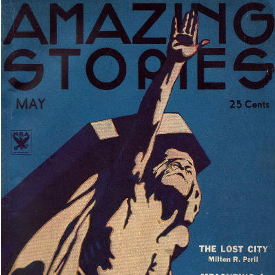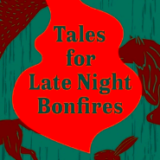EXTREMELY SHORT SUMMARY
Lots of fans sign up for free memberships to read cool, fannish, free stuff: Advertisers pay to advertise: Ad revenue is used to fund a magazine: The magazine purchases content from authors and artists: The content is published on the site (and in print). Member fans read it and see it all for free! (Mundanes pay the bill.)
SHORT AND SWEET SUMMARY
- In order to survive and last in today’s marketplace, a FREE magazine must reach an audience large enough to attract advertisers
- Fandom in toto represents an extremely large audience (30 millions?), and is more than large enough to attract advertising sufficient to support a magazine’s budgetary requirements
- Fandom is not a monolithic market. It is broken up into hundreds of special interest groups, many of them antithetical to others
- Advertising and promoting to each special interest group is cost-prohibitive. As a result, “Fandom” is largely ignored by advertising and promotional campaigns that would otherwise be considered a perfect match
- It is impossible to display the true size of the “Fandom Market” in the real world.
- It is possible to gather a much wider representation of Fandom in one place online; a website may be effectively divided into different special interest areas, none of which need to interact. So far as potential advertisers are concerned, the aggregate traffic (that made up of visitors from all of the special interest groups) to the website is the important factor. The individual visitor need only interact with those things on the site of particular interest to them. “Fandom” can be together and separate at the same time.
- Meaningful content serving a variety of special interests can and will attract those special interests.
- Members of Fandom represent an entire spectrum – from isolated consumer, to high profile organizer, to professionals in the field.
- Fans largely enjoy working together on projects that achieve a definitive goal.
- Genre fiction (SF/F/H) needs more short fiction markets. Fandom needs a more influential role in our culture.
- Fans can help achieve the goal of creating a paying short fiction market and increasing Fandom’s influence by becoming a member of the website (at no cost*).
- Fans can directly influence the course that the website and the magazine take through their interactions on the website.
- To be minimally attractive to advertisers, the website must gain a minimum of 10,000 individual views per day. There are some 6.5 Million self-professed readers of science fiction and fantasy in the US alone. Countless millions more (even accounting for overlap) watch genre television shows, play genre-related games, read genre comics and graphic novels, listen to genre podcasts and audio books, attend and purchase genre films.
- If the Amazing Stories website can attract a mere 1 ten-thousandth (.0001) of the existing genre audience, Amazing Stories the magazine can go into production.
Like the title says, you are probably wondering what this project is about, where it might be heading.
What you should probably be asking is why?
Why bring Amazing Stories back? Why name its parent company after the original? Why isn’t it springing forth as another fiction magazine? Why…?
The answer is – Fandom.
It should be readily apparent that the world we live in today is largely the product of fannish dreams in action. From the engineers and scientists at JPL & NASA who were inspired by science fictional ideas, to the writers and directors of today’s ubiquitous superhero films who are heirs to the creation of science fiction fans, we are surrounded, entertained, informed and touched by the fantastical made real.
How that happened is probably fodder for research in a number of fields, but one thing certainly played a role. Fandom, from its very beginnings, believed that it was special and it believed in idealism It even said so itself:
By 1939, fandom was hardly a decade old. “Readers” had become “fans” and the activists were young; very young. Teenagers were the troops and boys in their twenties were the “mature” leaders. In this cauldron of the 1930s, many young idealists who were science fiction fans decided that science fiction not only dreamed of brave new worlds, but that sf was grounded in reality and that fans should become activists as well as dreamers.
and
We believe that free speech, cooperation, and democratic acts and thoughts must be granted to science fiction fandom.
(from David A. Kyle’s recounting of The Great Exclusion Act of 1939, that took place at Nycon, the first Worldcon. From Mimosa.)
Over the course of the past eight decades, for better or for worse, fandom has fractioned into a thousand different communities. For the better, because specialized interest groups are responsible, at least in part, for the wide and varying influences it has had on our society. For the worse, because that fractioning has led to the dilution of its message and the decoherence of its meaning.
Fandom has always suffered from a split personality. On the one hand, it strives for truly lofty ideals: inclusion, understanding, embracing diversity, an unfettered willingness to share, a belief that its efforts can lead to meaningful change, rejection of commercialism and passivity, a reverence for history and tradition and an unquenchable desire to turn its dreams into reality.
On the other hand, fannish idealism has and can lead to fannish fanatacism. True believers have often failed to accomplish their goals, fighting each other over the placement of a metaphorical comma. One must not only have the right idea, it must needs be implemented in the right way. The very strengths of fandom’s nature are often the seeds of its own undoing.
Fandom was originally conceived as a commercial enterprise, one designed to inure to the benefit of first one and then another science fiction magazine. Fandom’s first great step was to reject that relationship in favor of a much looser, quasi-federated state. (Not that some didn’t continue to try for global unification; such is the stuff of fannish legend.) That unconscious decision led to tremendous growth and diversity of interest. It also Balkanized the community.
Such is the state of Fandom today. Fractured and disparate. So much so that some fandoms aren’t even aware of their true origins.
And yet the ideals of Fandom still hold sway. Lofty goals that we are admonished to strive for even as we frequently fail to live up to their intents. We are uncomfortably aware that those ideals are slipping away, that they may even be lost within a generation. We look for solutions, but we are stymied by fandom’s size and diversity.
I am an idealist. I entered fandom at an early enough age to have been positively influenced by its concepts. I’ve seen how volunteers can come together and build something far beyond their individual capabilities, all for nothing more than a bit of egoboo and the self-satisfaction of knowing they’d created something for their friends to enjoy. I’ve had my own rejection of bigotry and ignorance confirmed by the positive experiences I’ve had in fandom with people who aren’t the same color, or sex, or religion or from the same culture as I. And I have learned so, so much in the process.
As an idealist, I am committed to the belief that there is always an open path to achieving the goal. Sometimes the path is obvious, at other times it is obscure. One thing that I have learned over the course of a half-century of pursuing dreams is that you will never reach your goal if you do not start.
And so we start, this time with Amazing Stories, conceived as an open venue for Fandom, a place where our diversity can come together and express itself. A place where different interests can be both separate and together, all at the same time.
Who cares and what does that do for us anyway?
The physical world creates impediments to social and cultural activity. When planning on attending a convention, joining a club or even picking up a genre magazine, one of the primary considerations is “will everyone else be my kind of people?” If you are a Trekkie, you probably avoid fans of the show who insist on Trekker. If you want to talk Dr. Who and the fan on the couch next to you wants to talk B5, it is a good bet that one of you will shortly go in search of greener pastures. If you are a graying older fan, you probably find the “screaming kids” a major annoyance. If you are a younger fan, you probably don’t understand why those older fen are so caught up in whatever it is they’re caught up in. It’s soooo old hat!
Physical proximity is, without a doubt the fastest, clearest, most reassuring and satisfying way for people to get together. Conventions are the primary form of physical social gathering for fans. Conventions (and other forms of physical gathering) quickly become cliques of like-minded individuals; very satisfying for members of the special interest group, very uninteresting to everyone else. Niche markets that are incapable of attracting serious advertising interest.
On the web however it is possible for individuals to be together and separate at the same time. Facebook has hundreds of millions of members. Individual members need only interact with those they choose to interact with and can safely ignore hundreds of millions of people who are (virtually) sitting right next to them.
Put it all together and what you get is this: an opportunity for fans – all kinds of fans – to build an online community and at the same time, use their numbers to help fund the publication of a new version of Amazing Stories. Fans support the project by becoming members of the site; when the community grows sufficiently advertisers purchase ads; the ad revenue is used to fund the magazine; the magazine purchases fiction, non-fiction and art from your favorite authors and artists, that content is published on the website (and in print) and YOU get to read it all. Free of charge. Knowing that your presence in front of that screen was directly responsible for making it all happen. Isn’t it about time that Fandom starting getting something back from the mundane world? We’ve all certainly given them enough over the past 80 years – everything from Buck Rogers to the waterbed (check it out).
Fans – you can have a direct stake in bringing back the field’s most iconic name – and provide gainful employment for your faves at the same time. Authors and artists – send your followers here. There is a direct connection between their presence and your receiving a check (at or better than SFWA rates). Conventions & clubs, get in touch, we’ll help promote your events. Let’s all come together and help make this happen.
*The publisher of Amazing Stories is familiar with fannish concerns regarding privacy, commercialism and unfettered power. It offers up these policies in response to those concerns:
All contents of Amazing Stories (blog, magazine, user-generated social content) are and will remain free to the general membership. (Blog and magazine content will remain free to the general public as well; viewing social content requires a membership.) Electronic editions of the magazine and other electronic publications produced by the publisher will remain DRM-free.
General membership in the site will remain free. A subscription component will be added once the magazine begins production (a subscription WILL NOT be required to view the magazine’s contents when subscriptions become available). Subscribers will receive benefits in addition to the existing free content on the site.
Obtaining a membership on the site will only require a user’s User Name and a working Email Address; providing additional personal information will ALWAYS remain at the user’s discretion.
Individual identifying information will never be sold or transferred to third parties without prior consent of the individual member(s). (Non-identifying, aggregated user information – total number of users, average age, time spent on the site – may be sold or transferred to third parties as a necessary part of doing business with advertisers and marketers.)
The selection of advertisements and promotions on the website will be restricted to those products and services that are of interest to genre fans.
The purpose of the website is to create a viable targeted market, designed to attract advertisers in order to fund the publication of a professional, paying market. Members of the site vote with their presence. So long as the website’s actions satisfy the vast majority of its members, it remains viable, The potential withdrawal of member support is the single most effective tool in insuring that the publisher and site administrators remain on mission and do so in a way that is acceptable to the membership. The publisher states, publicly, that the website will remain an open and accessible venue, that it will take into account the suggestions and concerns of its membership , that it will respond to members in a timely fashion, that it will not edit or censor user content (except where such may be necessary for legal considerations and/or to maintain a “family friendly” environment) and that it will offer full disclosure on all issues affecting the membership. Furthermore, the publisher will endeavor to demonstrate through its actions, both publicly and privately, that it respects and continuously honors the commitments that it has made. Including a request to all potential members that they assist in formulating a set of rules and guidelines for the publisher to follow.











I wasn't quite aware of the extent of your vision until I read this. I'm impressed with both the breadth of your vision and the degree of idealism you exude.
I believe that the internet is a great haven for both innovators and opportunites. This site is not just an exercise in idealism, but in participatory democracy. If we want to get active, this is our opportunity to be an activist. And it only costs what we spend in time. All we have to do is participate and we can create a better world of our own making.
Okay. That sounds a little gooey when I read it twice, but what the hell…if it feels good … why not do it?
This is one of the most exciting proposals for a magazine that I have ever read. I never read Amazing Stories in the past (not for any particular reason – probably just because I didn't realize it was available), but I am so looking forward to reading the upcoming material. And I'm proud to be contributing to such an effort, even if it's only in a small way.
Thank you for this wonderful opportunity!
If I may, I would like to offer one small suggestion. When the print magazine does launch (whenever that might be), start the numbering with issue #1. Acknowledge the history of AMAZING STORIES, but clearly state that this is indeed a new version of AMAZING.
Johnny, I appreciate your concern, but this is MEANT to be a continuation of the original. In fact, doing so has been a 'tradition' of both previous efforts to bring the magazine back. The last issue of the original run was Vol 65, #3 in 1995. In 1998 it was resumed with Vol 70, #1, ending with Vol 72, #2 in 2000. In 2004 it resumed with Vol 73, #1, and ended in 2005 with Vol 74, #3. Both times the "whole number" was also treated as a continuation.